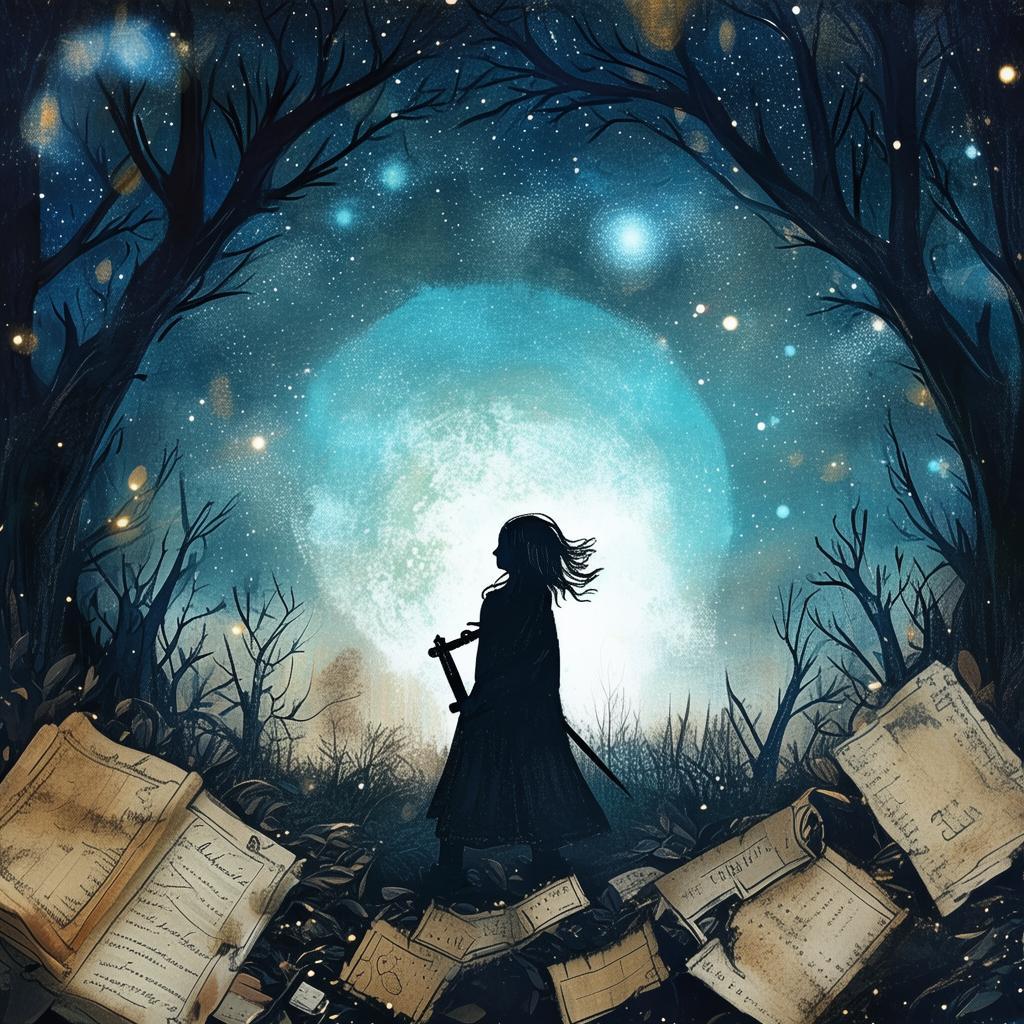The Last Sonnet of Mr. Keating
In the quaint town of New England, the Dead Poets' Society was more than a group of students; it was a rebellion against the rigid rules of an oppressive school system. At the helm was Mr. Keating, an unconventional English teacher whose passion for literature and life was contagious. He believed that every student had a story worth telling, and he encouraged them to express it through the power of poetry.
Among the students was a young man named Thomas, who had always felt like an outsider. His father, a former English teacher at the same school, had been a strict disciplinarian, and Thomas had grown up in the shadow of his expectations. Mr. Keating saw something in Thomas that his father had missed—a heart full of poetry and a mind eager to explore the world beyond the classroom.
One day, Thomas found himself in the midst of a heated debate with Mr. Keating. The topic was the nature of poetry itself. "Poetry is not about rhyming words or following rules," Mr. Keating declared. "It's about capturing the essence of human experience, the raw emotion that drives us to live and love and die."
Thomas was skeptical. "But what if I don't have a story to tell? What if I'm just another face in the crowd?"
Mr. Keating smiled, his eyes twinkling with a hint of mischief. "Then you'll find one. You'll write about the moments you've lived, the dreams you've dreamed, and the fears you've faced. And you'll do it with the same passion that drives you to breathe."
Inspired by Mr. Keating's words, Thomas began to write. He poured his heart into his sonnets, each one a testament to his journey from a boy who felt invisible to a man who was beginning to see the world in a new light.
The sonnets were a hit among the students, and soon, Mr. Keating decided to submit one for the school's annual poetry contest. To Thomas's surprise, his sonnet was chosen to be recited at the assembly. The night of the event, Thomas stood on the stage, his heart pounding, as he read his words to a sea of faces.

But as he recited the final lines, a shadow passed over his father's face. The man who had once been so proud of his son now seemed to shrink away, his eyes filled with a mixture of sorrow and regret.
After the assembly, Thomas approached his father. "Dad, I know this is hard for you," he said, his voice steady despite the emotion that threatened to overwhelm him.
His father nodded, his eyes glistening with unshed tears. "I'm sorry, Thomas. I never wanted to be the kind of father who made you feel less than. I just wanted you to be perfect."
Thomas took a deep breath. "I don't need to be perfect. I just need to be me."
The next day, Thomas received a letter from Mr. Keating. It was a simple note, but it contained a profound truth: "The last sonnet you wrote is beautiful, Thomas. It's not just about the words, but about the journey they took you on. Remember, the greatest gift we can give ourselves is the courage to be true to who we are."
With those words, Thomas realized that his father's sacrifice had been his own journey of self-discovery. And as he stood in the classroom one last time, looking out at the faces of his fellow students, he knew that he had found his voice.
The Last Sonnet of Mr. Keating was not just a poem; it was a story of growth, sacrifice, and the enduring power of poetry to transform lives. It was a testament to the idea that everyone has a story worth telling, and that sometimes, the greatest sacrifice is the one we make for ourselves.
✨ Original Statement ✨
All articles published on this website (including but not limited to text, images, videos, and other content) are original or authorized for reposting and are protected by relevant laws. Without the explicit written permission of this website, no individual or organization may copy, modify, repost, or use the content for commercial purposes.
If you need to quote or cooperate, please contact this site for authorization. We reserve the right to pursue legal responsibility for any unauthorized use.
Hereby declared.









